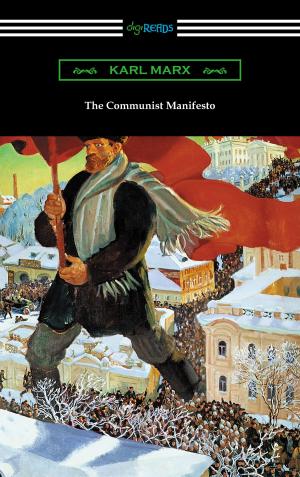Faust, Part 1 (Translated by Anna Swanwick with an Introduction by F. H. Hedge)
Nonfiction, Entertainment, Drama, Continental European| Author: | Johann Goethe | ISBN: | 9781420956023 |
| Publisher: | Neeland Media LLC | Publication: | September 20, 2017 |
| Imprint: | Digireads.com Publishing | Language: | English |
| Author: | Johann Goethe |
| ISBN: | 9781420956023 |
| Publisher: | Neeland Media LLC |
| Publication: | September 20, 2017 |
| Imprint: | Digireads.com Publishing |
| Language: | English |
Considered by many as Johann Goethe’s magnum opus, “Faust” has a peculiar history of composition and publication. What began as a project in Goethe’s youth, at the age of twenty, in 1769, “Faust” would not fully be completed until 1831 very near the end of the author’s life. Based on the German legend of Johann Georg Faust, a magician of the German Renaissance who reportedly gained his mystical powers by selling his immortal soul to the devil, the Faustian legend has forever come to symbolize the inherent peril in dealing with unscrupulous characters and supernatural forces. Presented here in this volume is the first part of “Faust”, which begins with a prologue in heaven in which we find god challenging the devil that he cannot lead astray one of his favorite scholars, Dr. Faust. The devil, known in the play as Mephistopheles, accepts the challenge and so begins the struggle of Faust between the allure of supernatural power and the fate of his soul. Despite numerous adaptations, Goethe’s “Faust” stands out as arguably the most famous version of this legend. Only Christopher Marlowe’s “Dr. Faustus” can be claimed to rival it for that position. This edition is translated by Anna Swanwick, includes an introduction by F. H. Hedge, and a biographical afterword.
Considered by many as Johann Goethe’s magnum opus, “Faust” has a peculiar history of composition and publication. What began as a project in Goethe’s youth, at the age of twenty, in 1769, “Faust” would not fully be completed until 1831 very near the end of the author’s life. Based on the German legend of Johann Georg Faust, a magician of the German Renaissance who reportedly gained his mystical powers by selling his immortal soul to the devil, the Faustian legend has forever come to symbolize the inherent peril in dealing with unscrupulous characters and supernatural forces. Presented here in this volume is the first part of “Faust”, which begins with a prologue in heaven in which we find god challenging the devil that he cannot lead astray one of his favorite scholars, Dr. Faust. The devil, known in the play as Mephistopheles, accepts the challenge and so begins the struggle of Faust between the allure of supernatural power and the fate of his soul. Despite numerous adaptations, Goethe’s “Faust” stands out as arguably the most famous version of this legend. Only Christopher Marlowe’s “Dr. Faustus” can be claimed to rival it for that position. This edition is translated by Anna Swanwick, includes an introduction by F. H. Hedge, and a biographical afterword.















